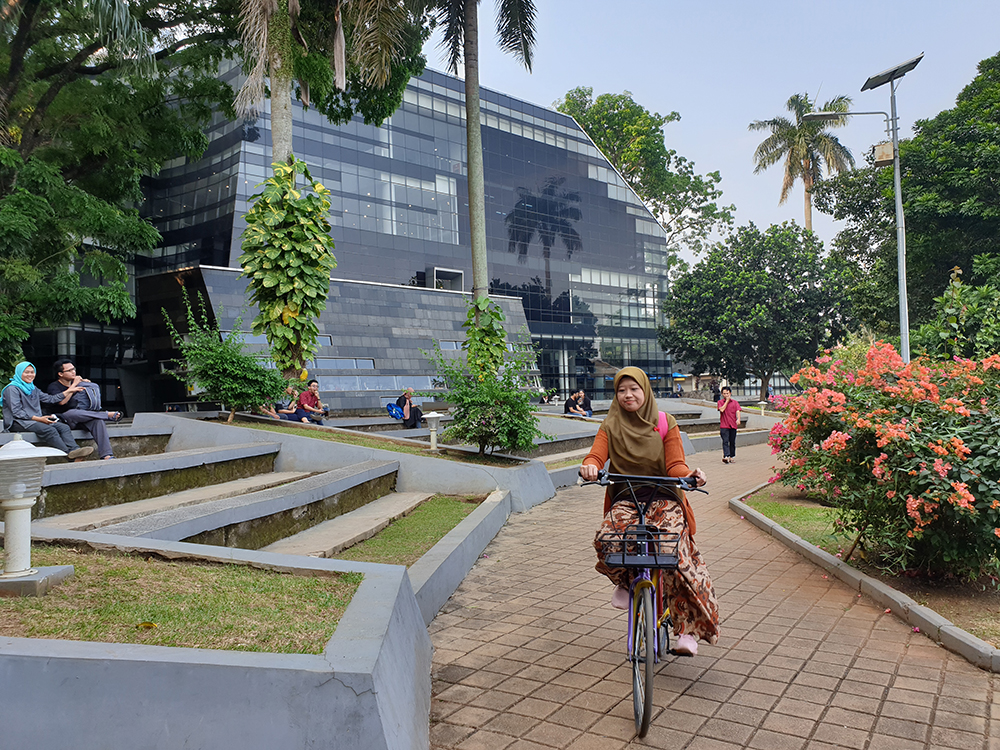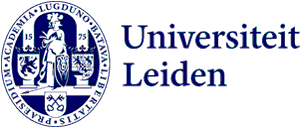
Our man in Jakarta keeps the institute running from Venlo
The COVID-19 pandemic forced many staff of Leiden institutes abroad to leave their posts in a hurry. How is the KITLV Jakarta team doing now? Director Marrik Bellen talks about the turbulent times for this Leiden institute and its staff. And can we learn anything from the Indonesian approach?

How did the COVID-19 crisis in Indonesia begin for you?
‘Like everywhere else in the world, Indonesia faced growing panic about the impact of COVID-19 starting in March of last year. The country also instituted a strict lockdown, and in Jakarta, the metropolis where I live and where our office is, we were hardly allowed to go out at all. The university’s International Incident Team decided to recall staff and students from abroad as quickly as possible.’
‘I left Jakarta in a hurry, together with my Indonesian wife. Everything we own is still there. We miss our family and the social contacts there enormously. I went back for a week to renew my residence permit last September, but we have basically been living out of our suitcases for a year now. My own house in the Netherlands had been rented out. After staying in a few holiday homes, we now have a furnished flat in Venlo, near my family. I manage our office in Jakarta from there.’

With a population of more than 280 million, Indonesia is the fourth largest country in the world. It has the world’s largest Muslim population, and more than 700 languages are spoken there. The university has long-standing partnerships with Indonesia. KITLV Jakarta stimulates contacts with Indonesian partners and provides information to Indonesians about studying and earning a PhD in Leiden.
Have you been able to keep the institute running?
‘We can manage reasonably well. In the beginning, our working methods were not at all geared to working from home. One of our institute’s major tasks is to purchase books for the university libraries in Leiden. Before the pandemic, about 20 vendors would come by our office with bags full of books every Friday. That came to a complete stop during the first lockdown. We arranged for staff to have fast, good internet and laptops for working from home and meeting via Zoom. The books were sent to my colleagues’ homes so that categorising them remained possible. Visits to universities and ministries are not yet an option. We now participate in virtual education fairs and hold online consultation hours. We have regular Zoom contact with our university partners. We also organise lectures and webinars, for example about access to the Indonesian collections in Leiden.’

What is more or less impossible now?
‘It’s more difficult to set up new collaborations because it’s hard to find the right contact people online. Digital communication also lends itself less well to brainstorming. Our office is located on the grounds of the Dutch embassy, together with Nuffic Neso and the Erasmus Training Centre, with whom we work. Before the pandemic, the lines of communication were short and interested parties could easily walk into our office, but that’s not possible now. Because of the coronavirus measures, the area is closed to the public and our office is now only allowed to be 20 percent occupied.’
Temperatures are taken at the gate of the embassy grounds.
How are things going for the office’s Indonesian staff who live in Jakarta?
‘Our 16 employees are doing well, considering the circumstances. Jakarta has had several phases of lockdowns. Now the restrictions have been eased somewhat, but there are still restrictions nonetheless. Staff are allowed to go to the office on a voluntary basis once or twice a week. There’s a maximum of one person per room and masks must remain on. Temperatures are taken at the gate of the embassy grounds. But all our staff are willing to do that. Most of them would like to get away from home. It’s similar to the situation in the Netherlands: parents with children have to homeschool and most people in Jakarta live with their families in small houses. There are still fairly strict restrictions for government and educational institutions, but these barely apply to private companies. The result is that everyone is once again stuck in Jakarta’s traffic jams for hours on end.’

KITLV Jakarta is also the contact point for Indonesian students who want to study in the Netherlands. How did that go at the start of this academic year?
‘The physical exchange programmes have all but stopped temporarily. Worldwide, students are postponing international study trips and, in Indonesia, many grant providers did not offer study grants in 2020. There are virtual programmes and a number of Indonesian students follow the Leiden lectures online. But that is sometimes difficult because of the five-hour time difference.’

How seriously has Indonesia been affected by the COVID-19 pandemic?
‘Indonesia has been seriously affected, but it is certainly not as bad as in India or Brazil. The government was quick to try to contain coronavirus and they already began vaccination, with the Chinese vaccine Sinovac, at the end of last year. There are also vaccines from the COVAX programme and Indonesia is starting to produce its own vaccines. Hospitals are quite full but, according to the government, there is sufficient capacity. Properly registering COVID-19 cases is complex in a country with 280 million inhabitants, 13,000 islands and the custom that the dead must be buried or cremated within a day. According to official figures, some 1.7 million Indonesians have now contracted coronavirus and more than 46,000 have died from it. The true numbers are probably much higher.’
Registering COVID-19 cases and vaccinating is complex in a country with 13,000 islands.
Can the Netherlands also learn from the Indonesian approach to COVID-19?
‘Indonesia opted for a different vaccination strategy from the outset: in addition to the vulnerable groups, staff from companies and government institutions have already been vaccinated. Colleagues at our partner universities on Java have almost all been vaccinated. In this way, they hope to open up higher education more quickly. Moreover, Indonesia is going to produce vaccines itself while the Netherlands is dependent on the supply. But Indonesia also has a long way to go. More than 17 million people have now been vaccinated, but most of them live on Java. Now they need to vaccinate the rest of the 280 million inhabitants.’
Does coronavirus also offer opportunities for academic collaboration?
‘Absolutely. Leiden has had various collaborations with Indonesian universities for many years, and the great thing is that they have now also found each other during this pandemic. The medical faculty at the University of Indonesia collaborates with LUMC. For example, Maria Yazdanbakhsh, head of the Department of Parasitology at LUMC, is working with Indonesian physicians to investigate why some people in certain regions are more resistant to the coronavirus. So these old partnerships are proving their worth again.’

When do you think you will be able to return to Jakarta?
‘I hope that will be possible around the summer. It’s not yet possible due to the more limited medical infrastructure compared to that in the Netherlands. My Indonesian residence permit will expire in August, so I’ll have to go there again to renew it. Some normalisation may be possible in the coming academic year, but restrictions on travel and compulsory testing will remain for the time being. Fortunately, I can see more and more rays of hope on the horizon due to the ongoing vaccination.’
Text: Linda van Putten
